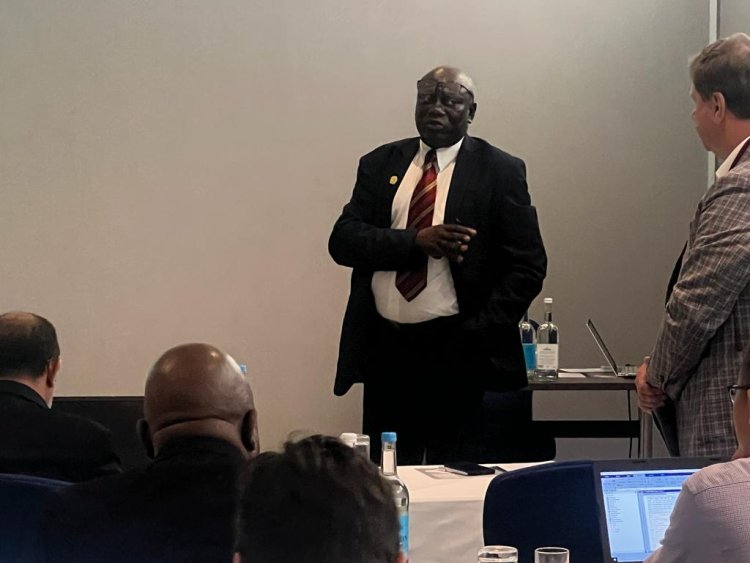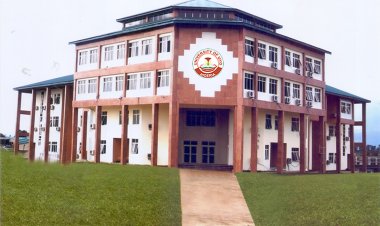ABU’s Deputy Registrar, Dr. Musa Ajiya, shares knowledge on energy at London Summit
The conference, ISNRE 2023, began on Monday, 14th August, 2023, and it will be rounded off today (Wednesday, 16th August, 2023).

A Deputy Registrar from Ahmadu Bello University, Zaria, Dr. Musa Ajiya, is one of the speakers who share their knowledge and vision at the ongoing International Summit on Non-Renewable and Renewal Energy in London, UK.
The conference, ISNRE 2023, began on Monday, 14th August, 2023, and it will be rounded off today (Wednesday, 16th August, 2023).
Dr. Ajiya’s participation at the summit was at the instance of the Spectrum Conferences which aim to contribute to the worldwide debate and effort on strengthening knowledge and bridging the gap between academia and industry.
The Spectrum Conferences bring together hundreds of experts and leaders from across the world to educate, energize and inspire the next generation with the recent advances in the field and their application in varied areas.
This year’s summit presents the most recent advances in technology developments and business opportunities in non-renewable and renewal energy, as highly cited researchers from renowned universities across the globe and industry leaders share their research and vision.
Dr. Musa Ajiya, a Deputy Registrar at the Registry Department of Ahmadu Bello University, Zaria, spoke on “Alternative Window for African Energy Transition: A Panacea to Climate Change”.
On the global outlook, Ajiya contended that fossil fuels were, by far, the largest contributor to global climate change, accounting for over 75 percent of the global Greenhouse Gas (GHG) emissions and nearly 90 percent of all carbon dioxide emissions.
He said that the UN medium variant projection showed that the global population could grow to 8.5 billion in 2030, 9.7 billion in 2050, and 10.9 billion in 2100, which implied higher activities, higher emissions of CO2 and higher energy demand.
Africa, according to him, was endowed with both non-renewable and renewal energy resources that could be harnessed for the production of cleaner, cheaper, and sustainable energy.
He explained that Africa’s relative degree of underdevelopment/under-industrialization signified that it contributed less to GHG emissions and by extension global warming.
On barriers to Africa’s energy transition, Dr. Ajiya stressed that there were several market, economic, institutional, technical, and socio-cultural barriers that hindered African countries in moving from high to low emission pathway.
Ajiya also spoke on alternative renewable energy options, saying that it was conceivable to produce wind, solar, thermal, nuclear, biofuels, biogas, and electricity networks without the need for carbon dioxide emitting power plants and many more forms of energy with technological advancements, improvements, and significant expenditures.

 Akeelah
Akeelah 



